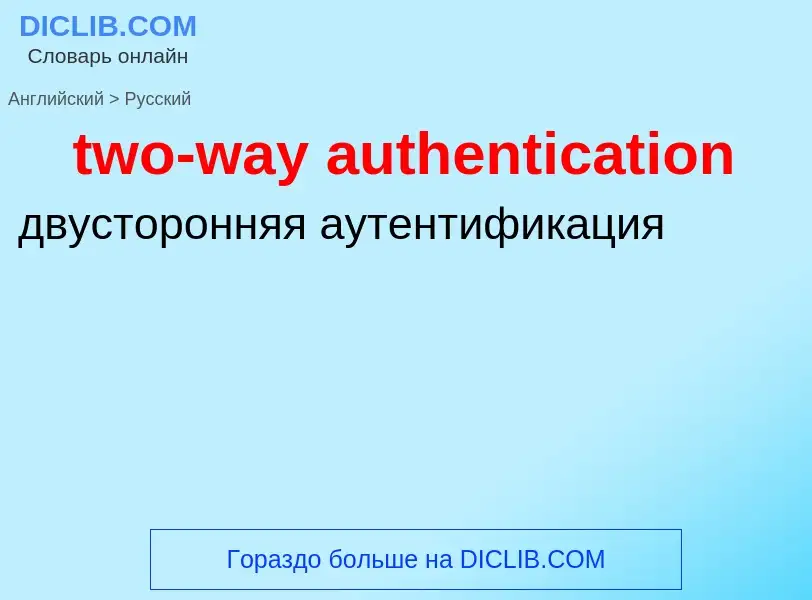Traducción y análisis de palabras por inteligencia artificial ChatGPT
En esta página puede obtener un análisis detallado de una palabra o frase, producido utilizando la mejor tecnología de inteligencia artificial hasta la fecha:
- cómo se usa la palabra
- frecuencia de uso
- se utiliza con más frecuencia en el habla oral o escrita
- opciones de traducción
- ejemplos de uso (varias frases con traducción)
- etimología
two-way authentication - traducción al ruso
Definición
Wikipedia
Mutual authentication or two-way authentication (not to be confused with two-factor authentication) refers to two parties authenticating each other at the same time in an authentication protocol. It is a default mode of authentication in some protocols (IKE, SSH) and optional in others (TLS).
Mutual authentication is a desired characteristic in verification schemes that transmit sensitive data, in order to ensure data security. Mutual authentication can be accomplished with two types of credentials: usernames and passwords, and public key certificates.
Mutual authentication is often employed in the Internet of Things (IoT). Writing effective security schemes in IoT systems can become challenging, especially when schemes are desired to be lightweight and have low computational costs. Mutual authentication is a crucial security step that can defend against many adversarial attacks, which otherwise can have large consequences if IoT systems (such as e-Healthcare servers) are hacked. In scheme analyses done of past works, a lack of mutual authentication had been considered a weakness in data transmission schemes.

